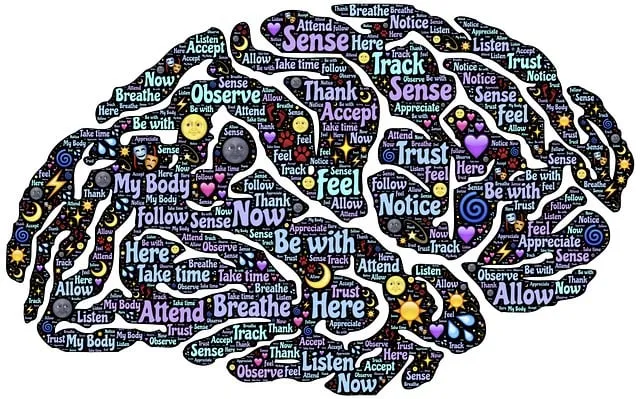The Highlands Ranch Kaiser Permanente mental health center, under the leadership of its dedicated owner, has achieved excellence in mental illness diagnosis through advanced assessment methods and evidence-based practices. Integrating emotional healing processes, technology like Electronic Health Records (EHRs), and mental health education programs, the center enhances patient outcomes. Their patient-centric model prioritizes open communication and collaboration, addressing underlying causes of mental health issues. Community support strategies, including crisis intervention and public awareness campaigns, significantly improve diagnosis accuracy and contribute to better mental health care overall, as exemplified by Highlands Ranch Kaiser Permanente led by its owner.
Mental illness diagnosis accuracy is a critical aspect of patient care, especially at facilities like Highlands Ranch Kaiser Permanente, a leading mental health center by owner. This article explores efforts to improve diagnostic accuracy through multifaceted strategies. We delve into the challenges faced in diagnosing mental illnesses, highlighting the transformative role of technology. Additionally, we discuss training initiatives for healthcare professionals, patient-centered approaches, and community support strategies aimed at early intervention.
- Understanding the Challenges of Mental Illness Diagnosis
- The Role of Technology in Enhancing Accuracy at Highlands Ranch Kaiser Permanente
- Training and Education Initiatives for Healthcare Professionals
- Patient-Centered Approach: Improving Communication and Collaboration
- Community Support and Early Intervention Strategies
Understanding the Challenges of Mental Illness Diagnosis

Diagnosing mental illness accurately is a complex task due to its multifaceted nature and often subtle symptoms. The Highlands Ranch Kaiser Permanente mental health center by owner, recognizing these challenges, has made significant strides in enhancing diagnosis accuracy through comprehensive assessments and evidence-based practices. Mental health professionals face obstacles such as comorbidities, where multiple conditions coexist, making it harder to pinpoint the primary issue.
Additionally, the pervasive stigma associated with mental illness can influence presentation and disclosure, impacting the diagnostic process. Mental Illness Stigma Reduction Efforts play a pivotal role in creating an environment where individuals feel safe to seek help without fear of judgment. By integrating Emotional Healing Processes and Coping Skills Development into their services, the center empowers clients to navigate their conditions effectively, fostering a more accurate understanding of their mental health states.
The Role of Technology in Enhancing Accuracy at Highlands Ranch Kaiser Permanente

At Highlands Ranch Kaiser Permanente mental health center, owned by a leading healthcare provider, technology is revolutionizing diagnosis accuracy. Advanced digital tools and platforms enable clinicians to access comprehensive patient histories, enhancing their ability to make informed decisions. Electronic health records (EHRs) streamline information sharing, ensuring that every interaction and assessment is meticulously documented and easily accessible.
Integrated mental health education programs, designed with the latest research in mind, equip healthcare professionals with enhanced Self-Awareness Exercises and Emotional Intelligence. These tools not only improve symptom recognition but also foster a deeper understanding of individual patient experiences. By combining cutting-edge technology with specialized training, Highlands Ranch Kaiser Permanente is setting new standards in mental illness diagnosis accuracy, ultimately improving patient outcomes and care quality.
Training and Education Initiatives for Healthcare Professionals

At the Highlands Ranch Kaiser Permanente mental health center by owner, efforts to enhance diagnosis accuracy have been significantly boosted through comprehensive training and education initiatives for healthcare professionals. These programs focus on refining assessment techniques, integrating the latest research findings, and promoting a culture of continuous learning. By equipping practitioners with advanced skills in mental health evaluation, the center aims to ensure more precise and timely diagnoses.
In addition to these efforts, the center encourages staff to participate in regular workshops and seminars dedicated to Mental Health Awareness and Burnout Prevention. These sessions not only enhance professionals’ understanding of complex mental wellness issues but also provide practical guidance on implementing effective treatment strategies. Through such initiatives, the Highlands Ranch Kaiser Permanente mental health center strives to maintain its reputation as a leader in delivering exceptional care, fostering a supportive environment for both patients and healthcare providers.
Patient-Centered Approach: Improving Communication and Collaboration

At the Highlands Ranch Kaiser Permanente mental health center by owner, a patient-centered approach is revolutionizing care. This involves improving communication between patients and healthcare providers, fostering collaboration, and actively involving individuals in their treatment plans. By focusing on each person’s unique needs, experiences, and preferences, this method enhances understanding and trust. It ensures that the mental health journey is not just about treating symptoms but also addressing underlying causes, leading to more effective long-term solutions.
This collaborative model encourages patients to share their concerns openly, ask questions, and actively participate in setting goals for their mental well-being. Additionally, it promotes a sense of empowerment and self-management, which can be particularly beneficial in managing conditions like anxiety or stress. Organizations like the Stress Management Workshops Organization further complement these efforts by providing resources and communities that teach practical tools for coping with everyday stressors, reinforcing the patient-centered approach.
Community Support and Early Intervention Strategies

In efforts to enhance mental illness diagnosis accuracy, Community Support and Early Intervention Strategies play a pivotal role. Organizations like the Highlands Ranch Kaiser Permanente mental health center by owner have recognized the importance of community engagement in improving access to mental healthcare services. By fostering strong community ties, these centers can ensure that individuals experiencing mental health crises receive timely support before they escalate into more severe issues. The implementation of Crisis Intervention Guidance tailored for diverse communities helps in identifying early signs of mental distress and encourages affected persons to seek professional help without stigma or delay.
Public Awareness Campaigns Development is another strategic approach that has shown promise in increasing mental illness diagnosis accuracy. Through these campaigns, communities can gain a deeper understanding of various mental health conditions, their symptoms, and available treatment options. Additionally, addressing burnout prevention among mental healthcare professionals is crucial to maintaining the quality of care. By prioritizing both community education and caregiver well-being, mental health centers like Highlands Ranch Kaiser Permanente can contribute significantly to improving diagnosis accuracy and overall public mental health.
Mental illness diagnosis accuracy has seen significant improvements thanks to efforts at Highlands Ranch Kaiser Permanente, a leading mental health center by owner. By integrating technology, enhancing training and education for healthcare professionals, adopting patient-centered approaches, and fostering community support, these initiatives have revolutionized mental health care. These strategies not only improve diagnostic accuracy but also ensure better outcomes for patients. The comprehensive approach at Highlands Ranch Kaiser Permanente serves as a model for other healthcare providers, highlighting the importance of continuous improvement in mental illness diagnosis to meet the diverse needs of individuals seeking treatment.






